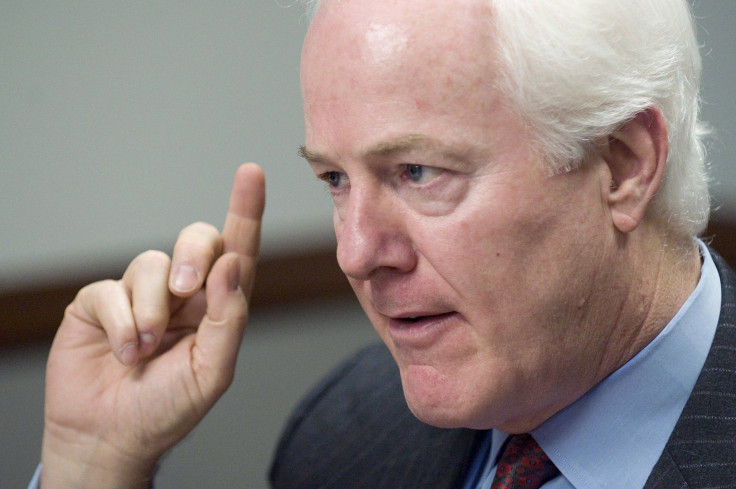Senate Passes Bill Letting Schools Give Education Money To Financial Consulting Firms

As budget-strapped Chicago follows a mass school closure with a new plan to layoff more than 1,400 teachers, one set of transactions sticks out: the city’s moves to refinance $1 billion in debt through complex financial instruments called swaps. The deals were spearheaded over the last few years by financial advisory firms brought in by the city to help find money saving efficiencies. Instead of saving money, though, the Windy City took a big hit: The school system has lost more than $100 million on the transactions and has paid millions in fees to its financial consultants.
Chicago is not alone. School districts across the country have been increasingly relying on high-priced consultants and Wall Street firms for financial and management advice. While proponents say many of the ensuing consultant-driven initiatives have resulted in cost savings, critics note that other initiatives have resulted in investment losses, layoffs and school closures. What is clear is that school districts’ reliance on outside advisers has created business opportunities for the financial industry. And now, thanks to an amendment to federal education legislation moving through Congress, that lucrative market for financial and consulting could become even more flush with cash -- specifically, with federal money meant for impoverished school districts.
The legislation was tucked into the Senate version of a massive K-12 education funding bill currently up for congressional reauthorization. The amendment from Sens. Mark Warner, D-Va., and John Cornyn, R-Texas, would allow local officials to divert money from the federal government’s multibillion-dollar fund for low-income school districts and use the cash to hire financial consulting firms, according to a press release from Cornyn's office. Both lawmakers are among the U.S. Senate’s top 10 recipients of campaign money from the financial industry, and Warner is a former venture capital executive.
When he was Virginia's governor, Warner pushed to subject schools to “efficiency reviews” that he says identified nearly $45 million in annual cost savings. On Wednesday, he touted his Senate measure as an initiative designed to generate similar cost savings and ultimately help school children.
“Too many districts don’t have the ability to assess whether they are spending operational funds in the smartest way,” he said in a press release. “I’m pleased that the Senate voted to approve my bipartisan amendment to help school districts spend their operations budgets more efficiently, so they can put more money back where it belongs: in the classroom.”
But opponents of privatizing government services say the legislation raises questions about whether it is more focused on helping financial and consulting firms capture a larger share of the more than $600 billion federal, state and local governments now spend on education.
“There is a multibillion-dollar government consulting industry -- the question is, does this open up an entire new potential market for those very well-positioned consulting firms?” said Donald Cohen, of In the Public Interest, a watchdog group that opposes privatization. “Every industry looks for a way to increase their market share. People look for revenue streams to increase their market share. It’s a pot of gold.”
Under the legislation, which passed the Senate unanimously but still must pass the U.S. House, school districts would have wide latitude in how they could spend the money on consultants. Unlike other sections of federal education law, which have detailed mandates for the types of data that schools must collect about their students and teachers, there is no mandate for any financial reporting by -- or performance evaluation of -- the private firms that will ultimately get the money. The amendment permits schools to take the resources earmarked for low-income school districts and use it to hire “fiscal support teams” to guide districts’ “fiscal, administrative and staffing functions, and any other key operational function.”
In recent years, banks have joined traditional management consulting firms in advising -- and taking fees from -- local school districts. The proposed amendment would not prevent banks from receiving federal education funds to advise a school district on a plan involving complex financial transactions. Warner spokesperson Rachel Cohen told International Business Times: “The amendment doesn’t explicitly exclude any entities from conducting the review.”
“So basically, if you can do that evaluation, you’re good to go,” said Cohen, adding that it would be “up to school districts and states to decide who to bring in to do that review.”
Public education advocates questioned the benefit of spending education dollars on consultants.
“Outside consultants rarely have their clients’ best interests at heart,” said Jeannie Kaplan, a former school board member in Denver, where outside consultants helped oversee an interest-rate swap deal that ended up costing the school system more than $177 million. “Their usual driving force is the bottom line. Let’s not forget that every dollar going to outside consultants is a dollar out of the classroom."

The amounts that consulting firms can earn for work on public school policy can be eye-popping. In Philadelphia, the Boston Consulting Group was reportedly paid $230,000 per week for its work pushing for privatized education services and closures of up to 88 schools in the city. The firm’s work was also kept secret from the public, until a parents group filed a successful lawsuit forcing the school district to release the firm’s final report and recommendations. In that case, the money to pay the Boston Consulting Group came from a private foundation, but the new Senate legislation could open up a federal funding stream for such work.
Among the chief proponents of the congressional bill was the Center for American Progress (CAP), a Washington, D.C., think tank that is closely associated with Bill and Hillary Clinton.
Bank of America, which made fees off of school district swap deals made in Chicago and Denver, has donated at least $50,000 to the Center for American Progress. Other major donors to the Center for American Progress include the Bill and Melinda Gates Foundation, which has given at least $500,000, and the Walton Family Foundation (of the Walmart fortune), which has also given at least $500,000 to the think tank. Both the Walton and Gates foundations have partnered with the Boston Consulting Group.
In an interview with IBTimes, CAP scholar Ulrich Boser defended the amendment, saying it can help other states replicate the cost savings Warner’s administration identified while he was governor.
"The model for this amendment, Virginia's model, shows that outside consultants were effective in finding efficiencies, like reducing the cost of bus service or cafeteria service," said Boser.
But when asked by IBTimes for evidence that financial consultants benefit public education systems, Boser acknowledged that "there is no academic evidence to support the idea that outside consultants help school districts."
UPDATE: This story has been updated to clarify the context of the comments from Warner's spokesperson and to specify that the money involved is earmarked for low-income school district expenses.
© Copyright IBTimes 2025. All rights reserved.






















